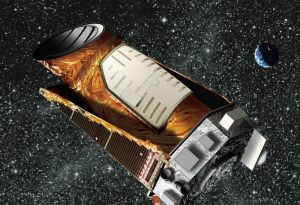Stephen Roberts, Somerville Fellow and professor of machine learning, writes about the growing sophistication of machine learning and how AI will enable us to extract insight from ever-growing volumes of data.
Engineering Science’s Machine Learning Research Group unites pioneering work on foundational machine learning topics, innovative programming approaches and application to problems motivated by major societal and scientific challenges.
We have led the development of approaches to machine learning that introduce intelligence to every level of an algorithmic pipeline; developing new ways of computing, augmenting machine learning models with intelligent probabilistic techniques and invented methods that ensure scalability and robustness for massive-scale information aggregation and knowledge extraction.
Our work has helped transform scientific application domains ranging from Astronomy to Zoology. It forms part of the pipeline for extracting exoplanet signatures from NASA’s Kepler space telescope, forms a core of vast data analyses such as in the Square Kilometre Array and has won the Google Impact Challenge to detect disease-bearing mosquitoes. It underpins fault detection, intelligent model-free control and monitoring of large-scale industrial systems, is embedded in systems to make energy networks and storage more efficient and lies at the heart of intelligent forecasting and decision-making for financial and commercial applications.
Our work has also addressed the broader societal consequences of machine learning and robotics, working to analyse how intelligent algorithms might soon substitute for human workers, and predicting the resulting impact on employment. We bring principled machine learning, at scale and without compromise, to the heart of science, industry and commerce and we will continue to provide intelligence, decision-making and knowledge extraction at a scale beyond human.
Over the coming years our research will further capitalise on this strong foundation – scaling innovative solutions to ever larger problems in industry and science, further expanding the group in machine learning in finance and commerce and developing the future state of the art probabilistic reasoning architectures.
Our vision is the application of machine learning which is capable of intelligence at vast scale – the ability to extract insight and address problems of global significance from billions of data streams, people and sensors.
Future complex systems understanding is dependent upon the capacity to rapidly combine and associate multi-format data comprising contextual prior information, free text, images, video, geo-tags, time series, and sensor network readings – aggregating it into interpretable quantitative summaries well beyond the current state-of-the-art. Our automated processes will actively explore and optimise over the huge space of relationships between data, permitting interactive knowledge discovery and enabling agile decision-making even given overwhelming data. Allied with this are revolutions in the way we compute and the power of learning systems.
In the coming decade we see a growth in the pioneering work we are involved with in quantum computation for machine learning; this promises the ability to solve the hardest problems in machine learning and beyond using some of the most bizarre physics we know – which will be transformational.
Machine learning is intrinsically broad in its academic foundation. Its core lies in deep understanding of mathematics and statistics; its pervasive use requires novel programming environments and concepts to flexibly respond to uncertain data at scale; its application requires the fusion of deep domain expertise into the artificial intelligences of the future.
Oxford is rich in the breadth of its talent across all these domains, from probabilistic reasoning to big data, from the theory of inference to meaningful industrial engagement.
There has not been a better time to lay the foundations for large-scale growth in this area; there is need, capacity and appetite. This is truly the age of the algorithm – and these algorithms are machine learning.

